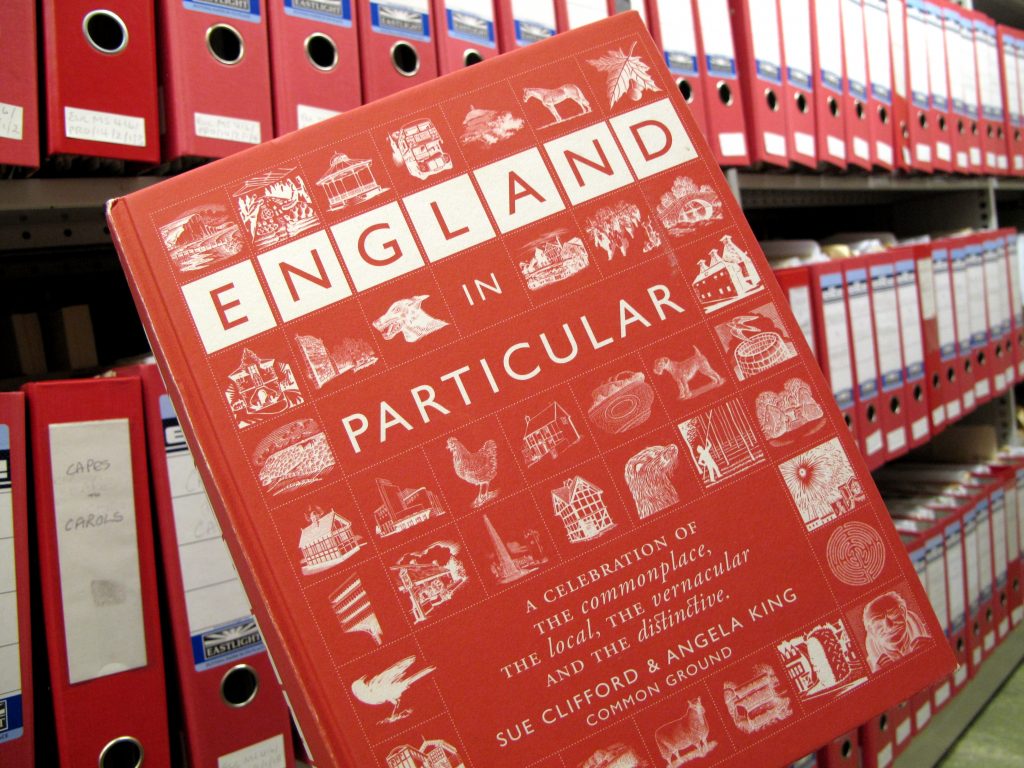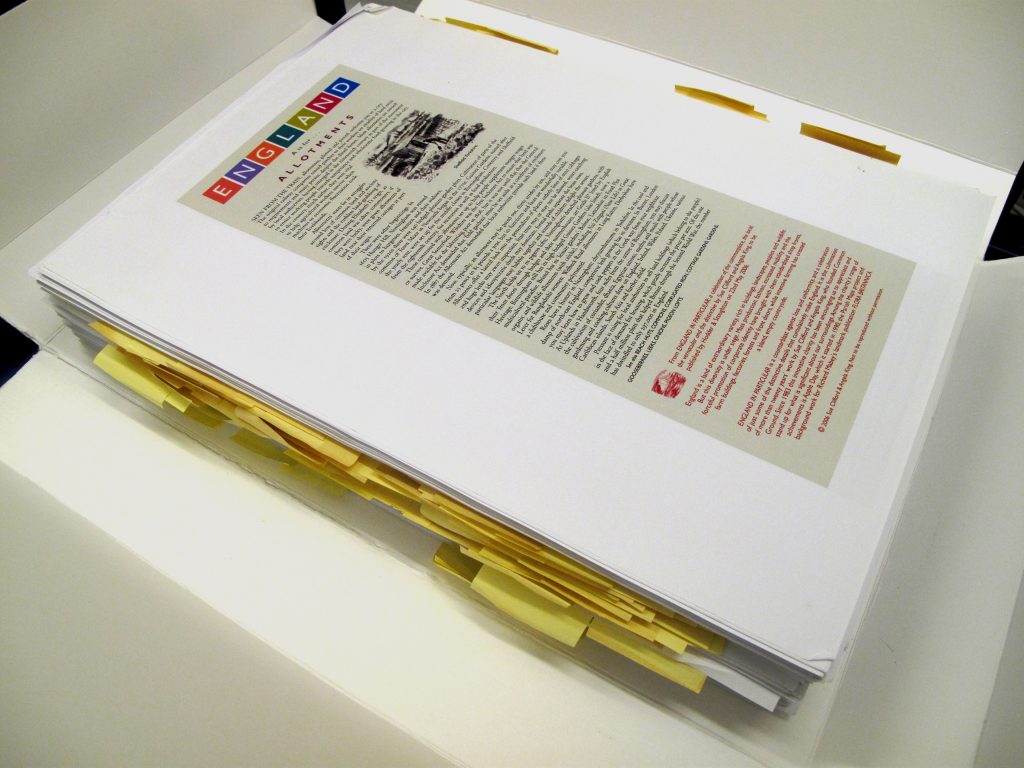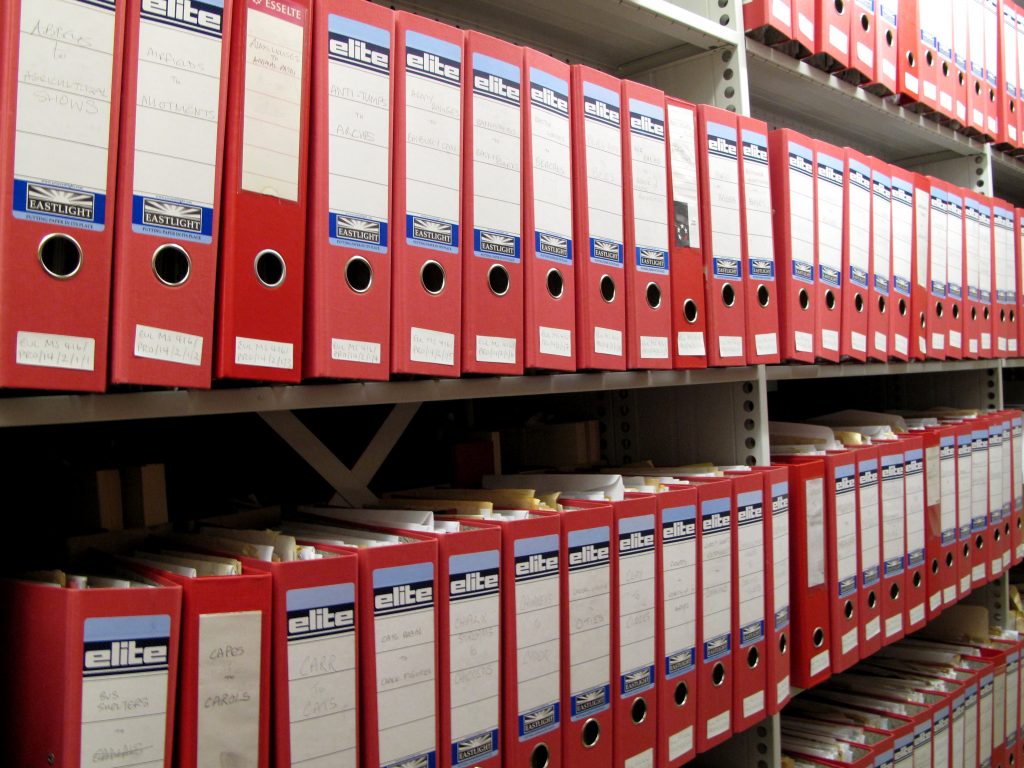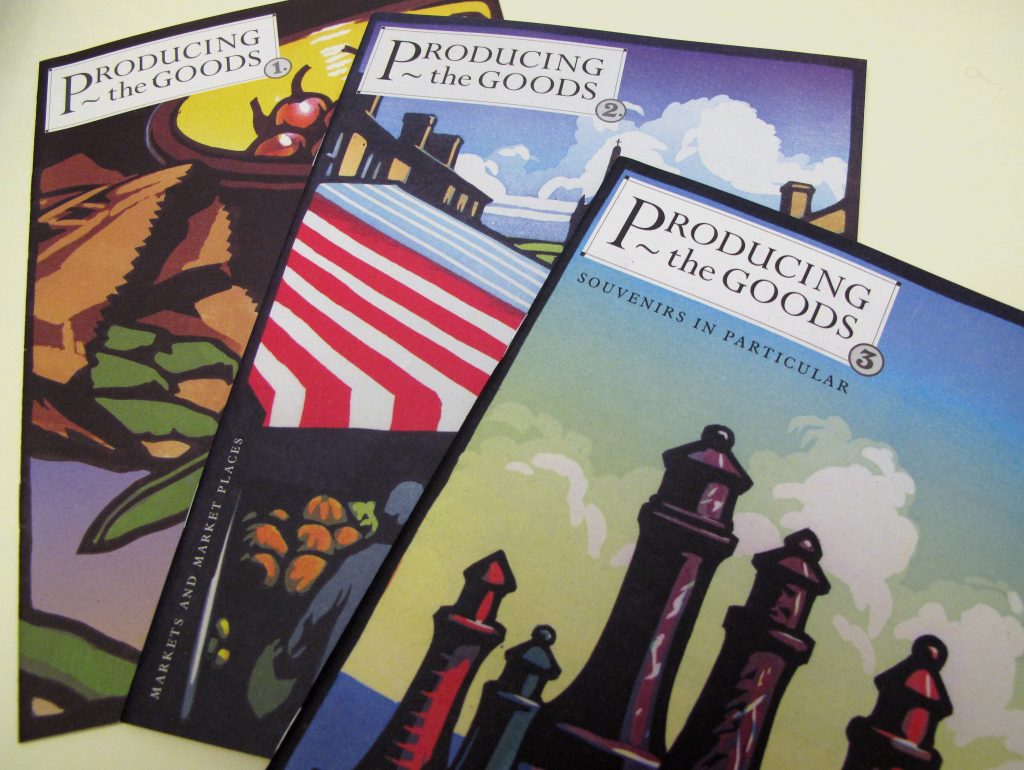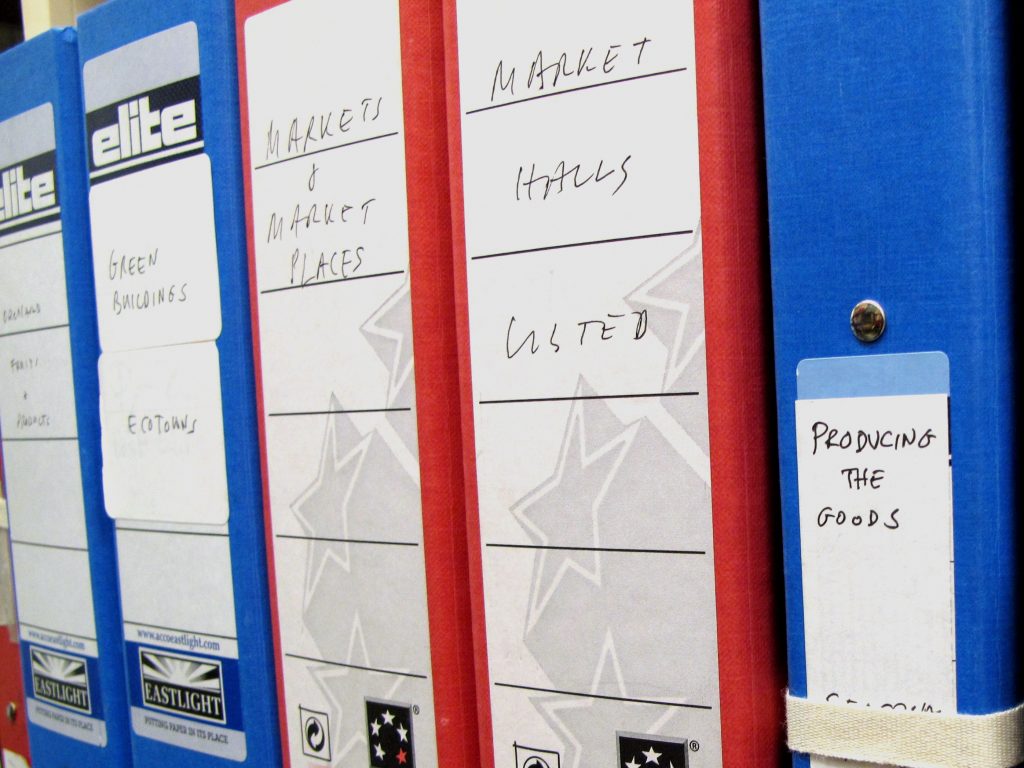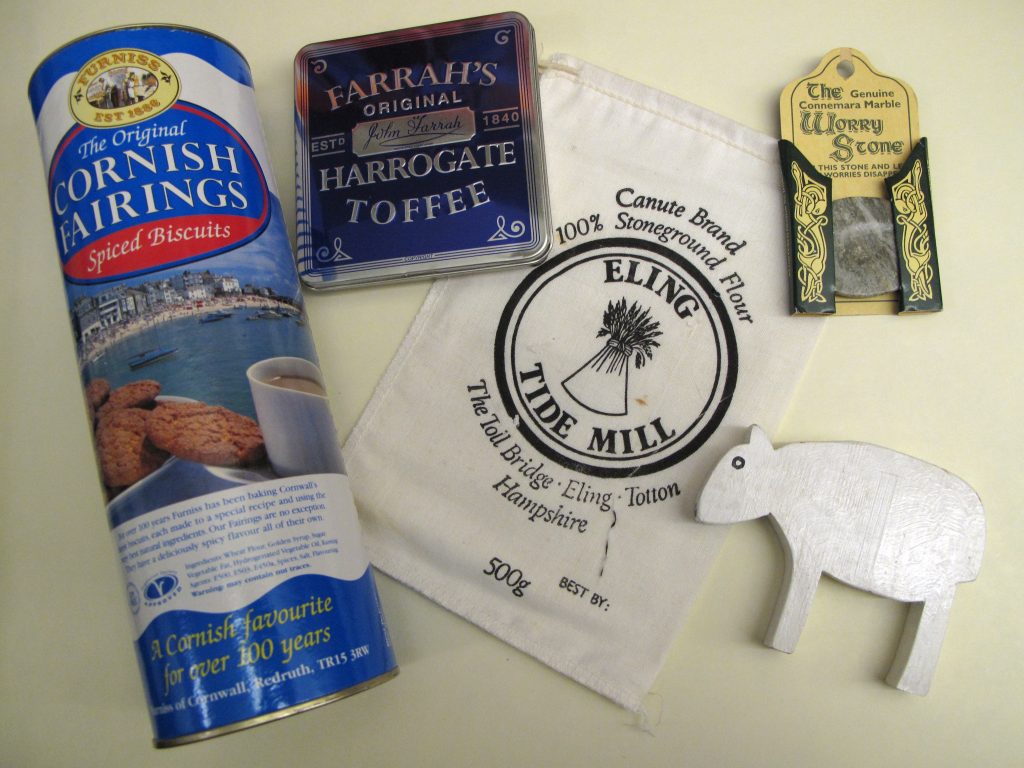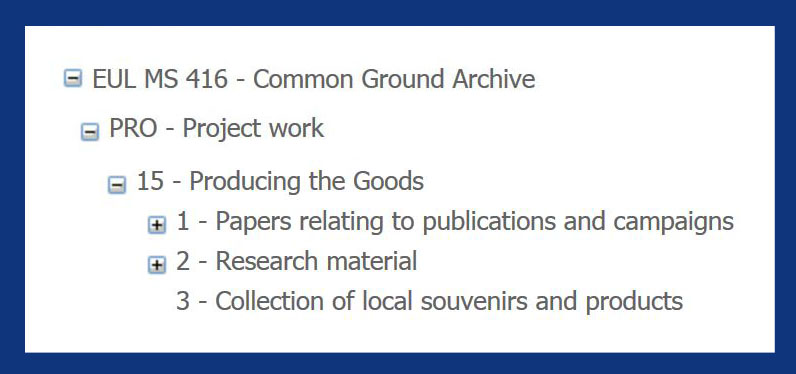I’m very pleased to announce that after two years and four months (extended due to the coronavirus pandemic), the project to catalogue the Common Ground archive has now been completed. The new catalogue descriptions will allow this extensive archive (measuring approximately 125 linear metres!) to be more easily searched, accessed and used. The archive has been arranged into sections, series and files, and descriptions are available for all to browse via our online catalogue. You can explore the new archive catalogue here.
[slideshow_deploy id=’1988′]
Common Ground is an arts and environmental charity, which was established in the early 1980s (founded in 1982 and charitable status gained in 1983) with a mission to link nature with culture and use celebration of the everyday as a starting point for local action. The charity has raised awareness of a variety of environmental issues through its innovative projects, which have involved public participation; the commissioning of new artistic works; the organisation of exhibitions, events and conferences; the launching of new calendar customs; and the publication of books, pamphlets, newsletters, leaflets and postcards. Many of the projects – in particular, ‘Parish Maps’, the ‘Campaign for Local Distinctiveness’ and ‘Apple Day’ – have proven to be highly sustainable, continuing long after Common Ground’s active involvement in them ceased.
The Common Ground archive comprises a wide range of material created and collected by the charity in the course of its activities between 1982 and 2013, including project planning papers, correspondence, reports, financial papers, research material, press clippings, photographs, promotional material, and publications. The largest section of the archive concerns Common Ground’s work on its various projects. These files are organised into sub-sections according to project, reflecting the archive’s original order and the use of the material by Common Ground. However, as many of the projects overlapped chronologically and thematically, some sub-sections relate to more than one project. It is therefore worth browsing the archive both via the hierarchical tree, as well as through an advanced search of the entire archive (enter EUL MS 416 followed by a * in the ‘Ref No’ field and enter a keyword e.g. Parish Maps in the ‘Any Text’ field.
[slideshow_deploy id=’1982′]
For me personally, the aspects of Common Ground’s work that really shine through the archive are project conception, public participation, and engagement through the arts. For each project there are project proposals and project planning notes, which reveal the thought processes and creative ideas behind Common Ground’s projects. The excitedly scribbled questions and ideas on pages of lined paper are particularly wonderful! All of Common Ground’s projects involved public participation to a certain degree, but my favourites are those that invited members of the public to share their own knowledge and experiences. Thousands of letters from people around the UK (and, in some instances, around the world) relating to projects such as the Flora Britannica, Orchard Observances and Parish Maps provide fascinating insight into the relationship between people and the environment. And finally, the archive contains correspondence, photographs and publications relating to Common Ground’s collaboration with artists, sculptors, craftspeople, photographers, writers, poets, playwrights and composers. The directors of Common Ground understood that the arts are an effective means to engage and excite people about their local environment, and made a special effort to work with a wide variety of practitioners, including Peter Randall-Page, David Nash, James Ravilious, David Wood, James Crowden, and Karen Wimhurst.
The Common Ground archive has the potential to be used for research in a wide range of areas, including environmental studies, geography, literature, visual arts, cultural studies, sociology, and business studies. The archive may also be of general interest to anyone keen to know more about environmental issues, arts, culture, or their local area (the archive includes material relating to thousands of towns, cities and villages across the UK). We hope that this cataloguing project will enable the archive to be more easily and effectively accessed and used for research, teaching and pleasure.
To find out more about the different Common Ground projects and the archive material relating to them, you can browse the past project blog posts, or visit our online guide to the Common Ground archive. The online guide has been designed to help you to navigate the archive catalogue, provide guidance on access and copyright, and answer some of your questions. You are also welcome to contact Special Collections by email at libspc@exeter.ac.uk for more information about the archive.
So that just leaves me to say goodbye for now! However, I am delighted to be continuing in my role as project archivist at the University of Exeter Special Collections, where I have already embarked on my next cataloguing project…
By Annie, Project Archivist
